News
-
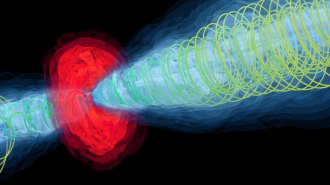 Space
SpaceA stunning simulation re-creates how M87’s black hole launches plasma jets
Two jets, thousands of light-years long, are re-created in a computer simulation, which suggests that M87’s black hole must be spinning rapidly.
-
 Materials Science
Materials ScienceResearchers have unlocked the secret to pearls’ incredible symmetry
Understanding the structural secrets of how mollusks form symmetrical pearls could inspire more optimal materials for solar panels and space travel.
-
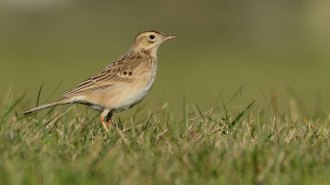 Life
LifeSome songbirds now migrate east to west. Climate change may play a role
In recent decades, more Richard's pipits are wintering in Europe than before. It may signal the establishment of a totally new migration route.
By Jake Buehler -
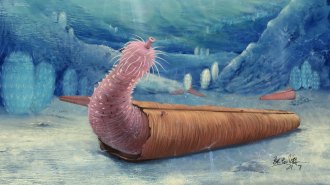 Paleontology
Paleontology‘Penis worms’ may have been the original hermits
Soft-bodied critters called penis worms inhabited abandoned shells — a la modern-day hermit crabs — by about 500 million years ago, a study suggests.
By Sid Perkins -
 Health & Medicine
Health & MedicineHow to choose a COVID-19 vaccine booster shot
To help you choose between the Pfizer, Moderna and Johnson & Johnson COVID-19 boosters, one reporter looked to the evidence and consulted experts.
-
 Earth
EarthEarth’s lower atmosphere is rising due to climate change
In the Northern Hemisphere, the upper boundary of the troposphere, the slice of sky closest to the ground, rose 50 to 60 meters a decade from 1980 to 2020.
By Freda Kreier -
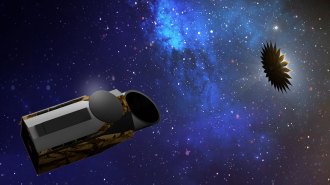 Space
SpaceHere’s what the next 10 years of space science could look like
In the latest Astronomy and Astrophysics Decadal Survey, astronomers have their sights set on a whole fleet of next-generation space telescopes.
-
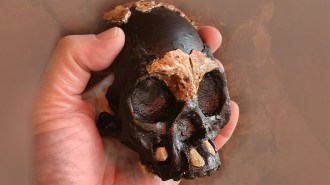 Anthropology
AnthropologyA child’s partial skull adds to the mystery of how Homo naledi treated the dead
The isolated discovery of a Homo naledi child’s skull fragments and teeth plays into idea that small-brained species ritually placed the dead in caves.
By Bruce Bower -
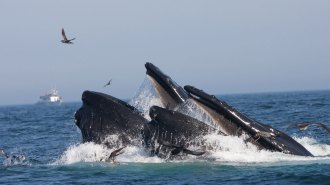 Animals
AnimalsBaleen whales eat (and poop) a lot more than we realized
The sheer volume of food that some whales eat and then excrete suggests the animals shape ecosystems to a much larger degree than previously thought.
-
 Physics
PhysicsNeutron star collisions probably make more gold than other cosmic smashups
Smashups of two neutron stars produce more heavy elements than when a black hole swallows a neutron star, calculations suggest.
-
 Planetary Science
Planetary SciencePluto’s dark side reveals clues to its atmosphere and frost cycles
Light from Pluto’s moon Charon illuminated the dwarf planet’s farside offering clues about how nitrogen cycles between its surface and its atmosphere.
-
 Space
SpaceA rush to watch a supernova exposed its last gasp before exploding
By studying the final years of stars, scientists hope to find clues to help them recognize when other stars are about to blow.